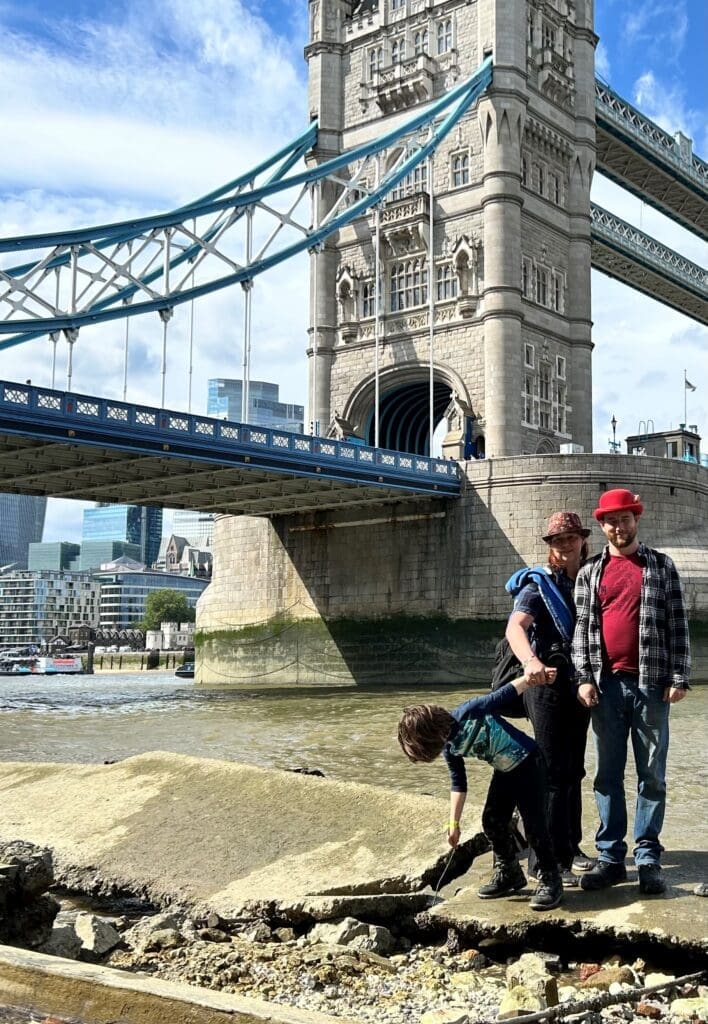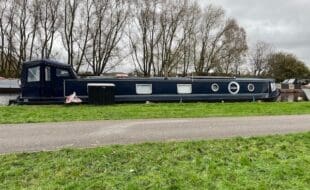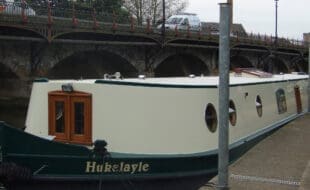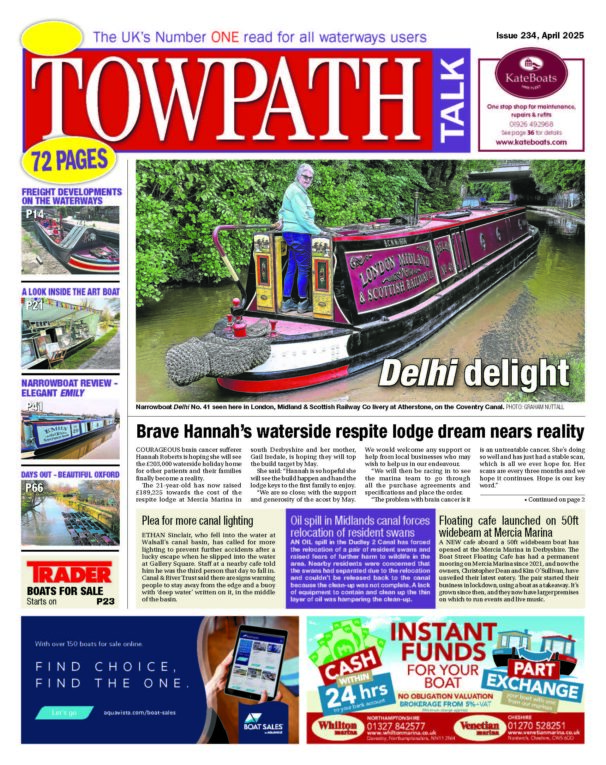Lucy Wood reports…
Calls are being made for the creation of a charter to protect the right of the children of constant cruisers to a reasonable journey time to school.
It comes as a mass survey of water users revealed that hundreds of boaters are missing out on access to vital services such as healthcare and banks due to the lack of a fixed address.
As reported in October’s edition of Towpath Talk, the Canal & River Trust’s first-ever census sampled almost 10,000 boaters – representing a third of current boat licence holders – and the results revealed the stark reality of living on the water for some. The lack of a fixed address means boaters can struggle to register to vote, apply for school places, find a GP, access healthcare and open a bank account – things that people with permanent addresses take for granted.

Now, access to education for the children of constant cruisers is under the spotlight as a family has spoken out about their struggle to abide by CRT regulations while ensuring their young son attends school. The five-year-old must sometimes endure miles-long journeys there and back – round journeys of about three hours – because of the family’s ‘restrictive’ cruising plan imposed by the trust.
They are backing their local Waterways Chaplain’s appeal for the CRT to introduce a Children’s Charter protecting the right of a child to access to their school within a reasonable journey time.
Christina Hemsley and Tom Murphy said their son Vincent benefits hugely from living on the water, surrounded by nature and wildlife, and loves going to school, but that he gets exhausted from travelling to and from school when their CRT-approved cruising pattern demands they journey further away from it – and that their lifestyle choice should not have to be compromised to meet the trust’s rules, as interpreted through the British Waterways Act 1995. The family are based around the River Lee on their narrowboat, and Vincent attends school in Hertford.
“This is about the rights of a child,” said Christina. “Vincent is a hardy boy, but he can only take so much. Unfortunately, it feels like the CRT makes constant cruising incompatible with attending a school. They’ve leaned on us quite heavily already and strongly recommended that we get a home mooring if we want our son to attend school.”
The CRT had been monitoring the family’s cruising pattern in the spring due to concerns about it not meeting the trust’s requirements for boaters without a home mooring. Following a review of boat sightings, in June the trust deemed the family’s boat as not having engaged in genuine navigation during that licence period, meaning Christina, Tom and Vincent had to either remove their boat from the waterways or apply for a home mooring licence.
After an unsuccessful appeal, they turned to their local Waterways Chaplain for help and resubmitted an improved cruising plan that comprised 18 planned moves to 14 different catchment areas in six months over a 30-mile range, cruising between Hertford, Bishops Stortford and Stonebridge. The CRT accepted this in July and granted a six-month restricted licence, which will then be renewed to the standard 12-month licence if the family is judged to have complied with the trust’s guidelines. If granted, the family are considering taking a winter mooring – but they say this restricts their choice of lifestyle.
“We had no choice but to comply with the CRT’s interpretation of the law as, in our opinion, we were under threat of homelessness, despite having a young child on board. The amended cruising plan brings us into areas with reported high crime levels in the darker winter months, and I believe it is likely to endanger our child, but we see no other way to comply,” explained Christina.
“We do genuinely cruise between places and have lots of people welcoming our boat when we come back to an area. We are speaking out because we believe that constant cruising simply cannot be incompatible with access to education via a school.”
Christina, who has a job in Woolwich, said that as an adult she can endure long travel times to and from work, but that expecting a child to do the same is “unreasonable, and could have long-term effects on our son.” “We don’t have a car and are reliant on public transportation,” she added, “which means one journey for Vincent can sometimes be 90 minutes – and that’s before he starts his school day.
“I urge the CRT rethink its current stance. It would be much preferable to partner with the trust and further the common goal of keeping our lovely waterways alive.”
Their concerns are backed by Lorraine Newman, senior Waterways Chaplain for the south east. She said: “I’ve noticed an increase in numbers of people having difficulties with licence renewal,” she said, “and my caseload involving this specific issue has risen dramatically in recent times.
“Vincent is sometimes travelling three hours in a day to go to school – and he’s five, he’s only just started going. I was a schoolteacher before I joined the chaplaincy and know that children this young get so tired after a day’s learning. Imagine adding a three-hour round journey to a child’s day and it becomes a welfare issue.
“I believe the CRT should create a Children’s Charter – recognising the right of a child to get to school within a reasonable journey time – just as the trust protects people with disabilities, for example. It should be acknowledged that children need schooling and have a right to it, and that they need a reasonable journey time.
“Moorings can be like hen’s teeth to obtain; there are CRT moorings, or private moorings in expensive marinas, for example, or they are not available at all. Also, a family’s wish to live as constant cruisers – which is a lifestyle choice – should not have to be compromised to access basic rights like education.
“I urge the CRT to give the education of children in boating families the same protection and privileges as other recognised rights. For example, a boater with a disability is entitled to what the CRT terms as ‘reasonable adjustments,’ depending on individual circumstances, to enable to stay continuously cruising under the Equalities Act. We all have one thing in common, after all – that we want our waterways to thrive.”
The CRT is clear about the regulations regarding granting constant cruising licences. Advice on its website reads: “The law and our licence conditions explicitly say that boaters without a home mooring – our continuous cruisers – must ‘bona fide navigate.’ You’ll need to continually move from place to place on a journey, rather than just shuttling back and forth between places and remaining in a small area.”
The British Waterways Act 1995 does not set a minimum distance or range for constant cruisers; the CRT has made what it considers a ‘fair interpretation’ of this law and advises that if people remain in a small area of the network, such as a range of just 20 miles, it will begin its enforcement process as this is not considered as genuinely navigating around the trust’s waterways. It advises that boaters who are not continually moving from place to place on a journey should obtain a home mooring, particularly if they have obtained employment at a specific location or if their children need to go to a particular school.
“Perhaps you’ve found some work, or your children need to go to a particular school. If you need to regularly stay in one place, or a limited area, then obtain a home mooring,” the CRT website continues. “Living aboard as a family can be a challenge, especially if the boat doesn’t have a permanent place to moor, but some boaters do raise their children on the water. We urge boaters to talk to us if they need help balancing their lifestyle needs with the licence requirements.”
As reported in Towpath Talk, a quarter of boaters who responded to the CRT’s census said they had difficulties accessing healthcare, and nearly half experienced issues claiming benefits. One continuous cruiser ended up needing life-saving emergency surgery after problems with having a virtual address led to her being taken off her GP’s books.
Matthew Symonds, head of customer service support, said: “While our charity provides guidance and a range of support options for those who are struggling, we need the organisations who provide the services – national government, local authorities, doctors’ surgeries, financial service providers, and government departments – to take steps to address the gaps in their provision.”
Read the census in full at https://tinyurl.com/CRTboatercensus and the CRT’s rules about constant cruising at https://canalrivertrust.org.uk/boating/licence-your-boat/continuous-cruising/continuous-cruising-your-questions-answered





